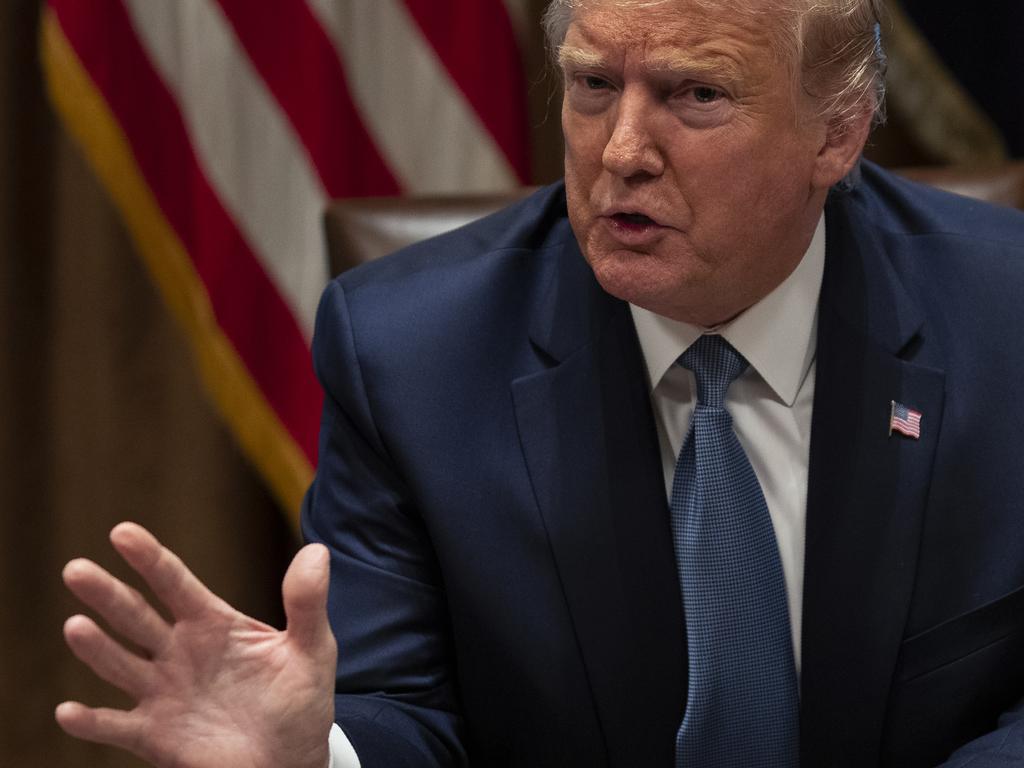Donald Trump impeachment debate in House settles nothing
The House impeachment debate makes clear US voters, rather than congress, will have the final say on Donald Trump.

The US House of Representatives’ debate over the impeachment of Donald Trump has drawn to an angry close and, though the proceeding may have been historic, it appeared to settle absolutely nothing.
Instead, it feels that the argument over the President’s actions has only just begun. The debate now will stretch into a trial in the Senate, and from there, almost certainly, straight into the 2020 presidential election.
In short, the day’s proceedings made clear that America’s voters, rather than members of congress, will have the final say on Trump’s conduct when they decide on his bid for re-election. And the effect impeachment will have at the ballot box is, at this point, nearly impossible to gauge.
Impeachment, of course, is a grave and momentous process, as all parties acknowledged as debate opened. Yet if it is possible for a grave and momentous process to feel anti-climactic, that was the vibe that emerged as a long afternoon of speeches by House members reeled out in one- and two-minute pieces.
Certainly there was anger aplenty on both sides of the political divide. Democratic House Speaker Nancy Pelosi said impeachment was the requisite solution the nation’s Founding Fathers had in mind when the country encounters “a rogue or a corrupt president”. Representative Adam Schiff, the intelligence committee chairman who led the impeachment inquiry, said the effort had produced “incontrovertible evidence that the president abused his power”.
Republicans responded that the impeachment was “illegitimate”, “illegal” and “dangerous”.
The lawmaker who brought the most melodramatic flourish to the proceedings was Rep. Barry Loudermilk, Republican of Georgia, who declared that during the “sham trial” of Jesus Christ, “Pontius Pilate afforded more rights to Jesus than the Democrats have afforded this president in this process”.
Yet for anyone who has watched the weeks of hearings that preceded the House debate, the arguments that both sides offered felt familiar, even tiresome.
What was lacking was even a scintilla of the common ground or bipartisanship that might help the country actually resolve the question of whether Trump acted improperly by pressing the president of Ukraine to conduct an investigation into Democrats and former vice-president Joe Biden.
Anyone expecting Republicans to express any misgivings about Trump’s behaviour, or any Democrats to question whether impeachment is the proper way to handle what they see as an abuse of power, was sorely disappointed.
It was true, as Democrats pointed out, that Republicans spent far more time attacking Democrats for launching an impeachment process than they did arguing that the President’s actions, and those of his personal lawyer Rudy Giuliani, in dealing with Ukraine were wise or proper.
Democrats faced an uncomfortable problem of their own. This impeachment debate is unfolding near the end of the president’s first term, rather than, as in the similar inquiries of Bill Clinton and Richard Nixon, in the midst of a president’s second term. That has opened Democrats up to charges that impeachment represents an effort not only to overturn a prior election but also to interfere with the next one.
In short, Republicans argued, Democrats were “weaponizing” the serious constitutional provision for impeachment. Yet Trump is a master of the art of weaponising debates as well, and his party has set out with a fury to use impeachment to attack Democrats in Trump friendly districts.
All of which means the question is falling to voters. And on that front, history doesn’t give a clear guide to impeachment’s impact. Andrew Johnson was impeached by the House in 1868, and narrowly avoided conviction in the Senate, and the effort effectively ended his political career. After Richard Nixon resigned in 1974 to avoid impeachment, the opposition Democrats rode the impeachment wave to pick up 43 seats in the House in that year’s mid-term elections, and the presidency two years later.
Yet when an impeachment process unfolded against Bill Clinton in 1998, it was the opposition Republicans — the ones pursuing impeachment — who lost seats in that year’s mid-term elections. Clinton survived in the Senate, and the Republican who led the impeachment charge, House speaker Newt Gingrich, was the one who lost his job.
The uncertain political effects were vividly illustrated in a new Wall Street Journal/NBC News poll released just as the impeachment vote was approaching. Those surveyed were split precisely evenly, 48 per cent to 48 per cent, on whether Trump should be impeached and removed from office or not impeached and remain in office.
And when asked how they would react to a member of congress who supported impeachment, voters split almost evenly into three camps: Almost equal shares said such a stand would make it more likely to vote for the lawmaker, less likely to do so, or that it wouldn’t make any difference.
The Wall Street Journal







To join the conversation, please log in. Don't have an account? Register
Join the conversation, you are commenting as Logout